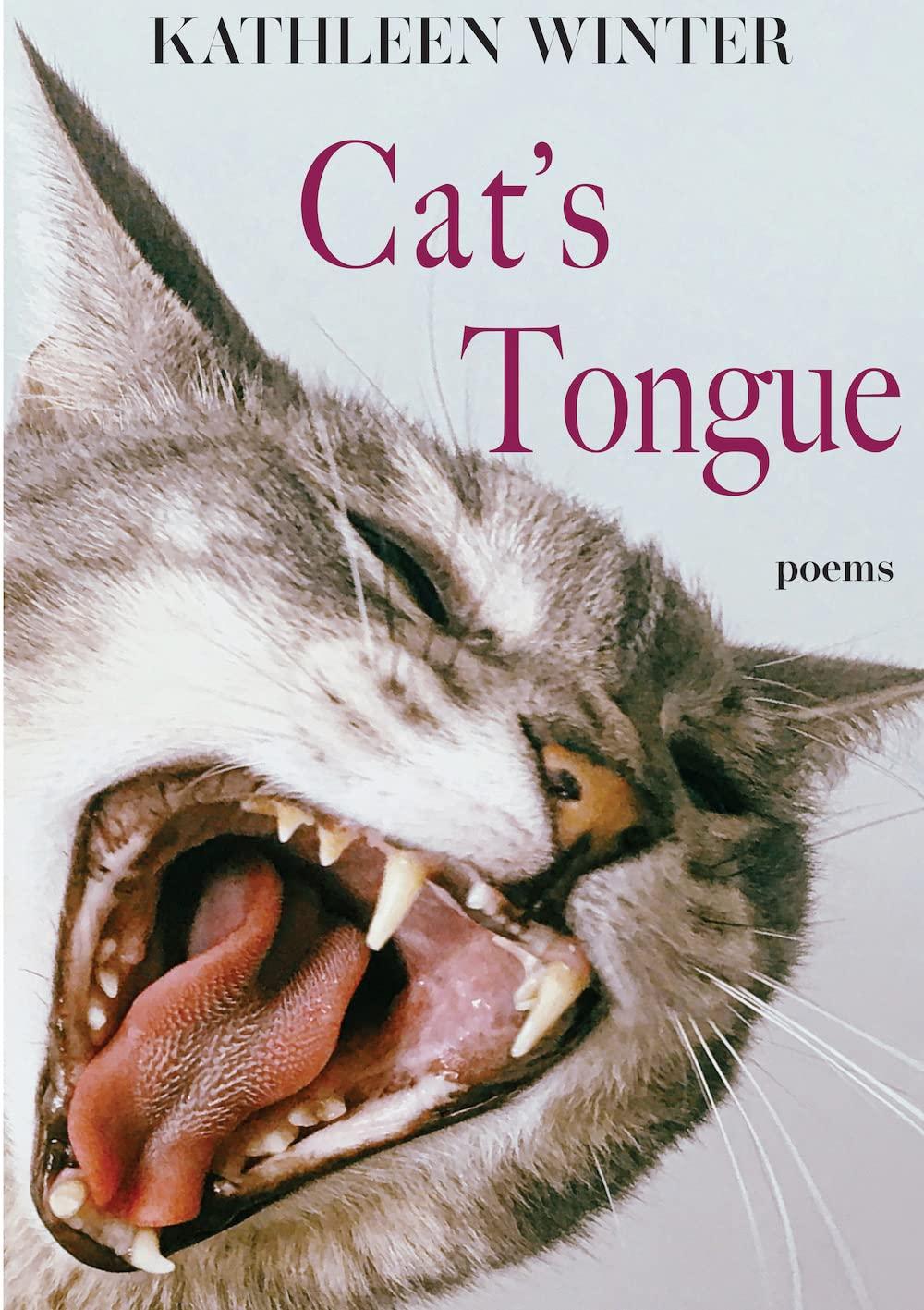
POETRY
Kathleen Winter
Texas Review Press
Paperback, 9781680032697, 40 pgs.
April 22, 2022
Expect the unexpected in Kathleen Winter’s Cat’s Tongue, a collection of twenty-two poems with the perfect cover image—a fierce open-mouthed feline. As the writer introduces us to her world, we feel that cat’s rough tongue licking us into a consciousness.
The chapbook opens with “Beside Myself,” a self-aware introduction in which Winter compares memory to a dog with “one wild eye.” At first glance, her next poem “Some days I want certainty, some days, revelation” appears to be a prose poem, but it reads like a reverso, a poem with two parts. The second stanza reverses lines from the first, bringing contrast and additional meaning to the reading. The form requires a high level of craftsmanship, and the author masters it with her childhood memory of a snake’s visit to her elementary classroom.
Her ease with language is most evident when she riffs on the letter T in a poem almost shorter than its title: “Matchbook Picturing Two Women: Beauty & Charm.” She plays with T-notes and T-stops, travels from “fast-firing minds” to “Ferris wheel flattery,” all traps for the unwary. Finally, she admits, beauty and charm never suited her to a T.
At times, the author moves through diverse images quickly, jumps from thought to thought, but in the end, she tugs on a single thread that pulls it all together. “Incandescence” is a favorite example of this. After describing social gatherings where she read in various closets and bathrooms and a fearless former roommate, she ends her poem with, “Tonight I want to be alone in good company.”
Her most fragmented poem in the collection is “Crazing,” a list of seemingly unrelated comments about the artist Duchamp, a rock band, suffrage, and a Florentine bridge. Crazing in ceramics, however, is caused by glaze being under too much tension during cooling. It pulls things apart, but as Winter explains, “The worst marriages make the best divorces.”
The title poem “Cat’s Tongue” is a stream of conscious prose poem set at a college reunion. It begins predictably with the narrator spotting an old love across the room, but then dark surprises sneak up on the reader, cat-like. “She wanted to say something to him, to bite into the base of his neck deftly causing a bacterial infection, to sling the words at him with her cat’s tongue, every syllable covered with a million tiny barbs.” The craftsmanship in this piece is masterful.
In “The Writing Teacher as Rampant Stag,” Winter shares her one rule for students, “Everyone has an hour, half hour, a page.” The intensity of her frustration over students’ excuses builds. At the end, she rants in a long sentence full of strong verbs and repetitions. Writing teachers everywhere will applaud this one.
Winter’s last lines are uniformly strong. Even “Memory Fruit,” her shortest poem, which has only four lines, ends with “My grandmother’s tears falling on her salted melon, scattered with its own.”
The flow between the poems in the chapbook works well, but I would have loved to see a few poems using more white space. Winter, however, brings a strong female voice to Texas Review Press in a collection that all readers will appreciate.
KATHLEEN WINTER’s poetry collections include: Transformer (The Word Works 2020); I will not kick my friends (Elixir 2018); and Nostalgia for the Criminal Past (Elixir 2012). She was granted the Texas Institute of Letters’ Ralph Johnston Fellowship and Bob Bush Memorial Award, the Elixir Prize, the Antivenom Prize, and Poetry Society of America's The Writer Magazine/Emily Dickinson Award. Her poems and short fiction appear in The New Republic, New Statesman, Agni, Cincinnati Review, Colorado Review, Michigan Quarterly Review, Gulf Coast, Five Points and Poetry London. She was awarded fellowships at Sewanee Writers’ Conference, Dora Maar House and James Merrill House.
